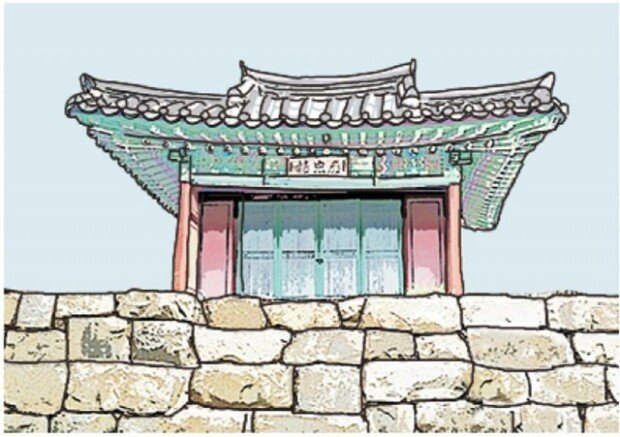Let us deeply thank them
Let us deeply thank them
Posted June. 08, 2021 07:24,
Updated June. 08, 2021 07:24

The Red Turban invasions dealt a critical blow to the Goryeo dynasty in the year 1360, which was too astounded by sudden attack to stop invaders from breaking in the northern part of the nation. The Red Turbans arrived in Hwanghae Province. Later on, Goryeo formed the final defense line at Jeollyeong where Jeongbang Mountain Fortress was built afterward. The failure of defending against the invaders would lead the capital city of Kaesong to fall as well.
As many as 10,000 Red Turban troops accessed the defense line at night on Nov. 16, 1360. The Goryeo military failed to notice such risky progress. In the middle of the night, five thousand cavalry troops broke through rudimentary posts by rushing toward a wooden fence. Goryeo troops and refugees alike were exterminated. Although history does not record how many were killed, the horrors of the scene might have been excruciatingly horrible. Red Turban troops left southward with corpses abandoned across the field.
The dynasty built up an altar to honor the victims. Altars were established to contain bad luck when epidemics spread. The altar in Jeollyeong had existed until the Joseon dynasty. It might have been set up to console the dead but it must have been designed to prevent epidemics from spreading.
The Battle of Ssangnyeong as part of the Manchu War of 1636 has long been criticized mistakenly for 30,000 Joseon troops defeated by as small as three hundred troops from the Qing dynasty. Here stands Jeongchungmyo today. Although it is surprising to see a small-sized shrine here, the monument for failure gives us mixed feelings. No matter what society it is, failure in war is never something that people hope to be remembered in history. People frame the innocent ignoring the significance of analyzing causes. They are to blame but what are the troops who sacrificed their life to safeguard their nation and citizens held accountable for?
Although they lost war, it does not mean that they were losers. It matters to honor and thank them while identifying the root causes of their defeat so that the same wrongs will not be repeated. Knowing is not the same as practicing. People often make resolutions but fail to keep them going within three days. We can reflect on the past and change for the better only when we suffer a devastating failure in life. Nations and societies require a higher level of determination to making improvements. That is why such tragedy repeats itself in war history. We should accept defeat and give the sacrificed troops buried in the ground a greater level of gratitude.




![17년 망명 끝에, 부모 원수 내쫓고 집권[지금, 이 사람]](https://dimg.donga.com/c/138/175/90/1/wps/NEWS/IMAGE/2026/02/18/133376197.3.jpg)

![[속보]美대법원, 트럼프의 국가별 상호관세 ‘위법’ 판결](https://dimg.donga.com/c/138/175/90/1/wps/NEWS/IMAGE/2026/02/21/133392930.1.jpg)
